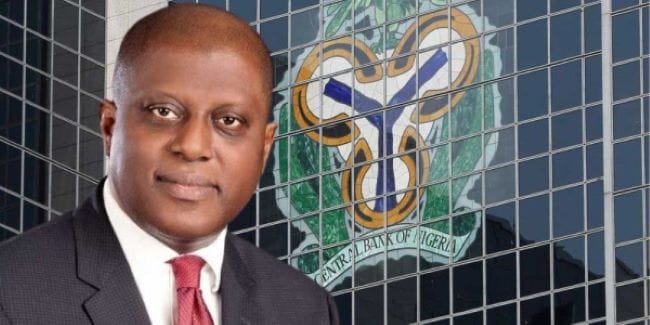Cardoso advocates for strengthening of anti-money laundering, cybersecurity regulations

The Governor of the Central Bank of Nigeria (CBN), has advocated for strengthening of anti-money laundering, and cybersecurity regulations. Cardoso said this while urging Non-Bank Financial Institutions (NBFI) in the West African Monetary Zone (WAMZ) to strengthen anti-money laundering practices.
Cardoso made the advocacy on Monday in Abuja, in his keynote address at the 10th Meeting of the College of Supervisors for Non-Bank Financial Institutions (CSNBFI) in WAMZ.
CBN revokes licence of Heritage Bank over financial stability, safety concerns
He was represented by Mr Arogundade Abayomi, Acting Director, Other Financial Institutions Department of the apex bank.
Cardoso emphasised on the need for monitoring trends, risks, and innovations in such categories of financial institutions.
“We must continue to push forward the agenda of strengthening the anti-money laundering practices; deepening supervisory capacity on cybersecurity and fintech regulation, and the implementation of risk based supervisory approach.
“We reiterate the importance of monitoring trends, risks and innovations of NBFIs/OFIs as their increasing transaction volumes pose major financial system stability risk.
“Fintech loans are one of the most commonly reported innovation.
“While overall, this may appear small in relation to the size of credit by Deposit Money Banks (DMBs), some jurisdictions, globally, have noted a growing trend in the volume of these loans,” he said.
Cardoso said that fintech credit is usually provided via electronic platforms that connect lenders to borrowers, in which case the platform takes the role of a financial auxiliary.
According to him, in some cases, loans are taken on the balance sheet of these platforms (even if it is short-term), in which case the platforms are akin to new types of financial intermediaries.
He commended the college for focusing on climate risk regulation during the technical sessions of the meeting.
Mr Yaw Sapong, the outgoing Chairman of CSNBFI, WAMZ, said that the meeting would enable the participants to discuss issues of supervisory concern and share experiences.
“By coming together, we strengthen our collaborative efforts and enhance our ability to respond to both opportunities and challenges in our respective jurisdictions.
“The role of non-bank financial institutions in our sub-region cannot be overstated.
“They provide essential financial services to underserved segments of our populations, including small and medium-sized enterprises (SMEs).
“This fosters economic growth and financial inclusion, thereby contributing significantly to the overall development of our economies,” he said.
He commended the West African Monetary Institute (WAMI) and the West African Institute for Financial and Economic Management (WAIFEM) for their unwavering support to member states.
He said that their contributions had been vital in advancing regulatory and supervisory frameworks.
The Director -General,WAMI, Mr Olorunsola, Olowofeso, said that the global economy had been surprisingly resilient.
“As we all continue to anticipate the soft landing of global inflation to pre-pandemic levels, let us continue to monitor policy actions and spillovers to ensure the financial system is resilient.
“In the WAMZ, after turbulent years, the outlook is gradually improving.
“However, the funding squeeze persists as governments continue to grapple with financing shortages, high borrowing costs and impending debt repayments.
“Emerging risks to the financial system include climate-related risks, internet disruption, cyber and social media threats arising from the digitisation of financial services,” he said.
He said that to strengthen the resilience of the financial sector, member states should develop adequate national cybersecurity strategy and appropriate regulatory and supervisory frameworks.
He said the meeting was very important as it presented another opportunity to review developments in the non-bank financial institutions sub-sector, within the zone for the second half of 2023 and the first quarter of 2024.
He said that it would also help assess the regulatory and supervisory challenges of member states, and share experiences to mitigate emerging risks to the financial system of the WAMZ.
“Your discussion should focus on identifying, assessing, monitoring emerging risks, vulnerabilities and early warning signals in the NBFI sector of the member states,” he said.
He urged participants to provide relevant recommendations to the Committee of Governors of the WAMZ












